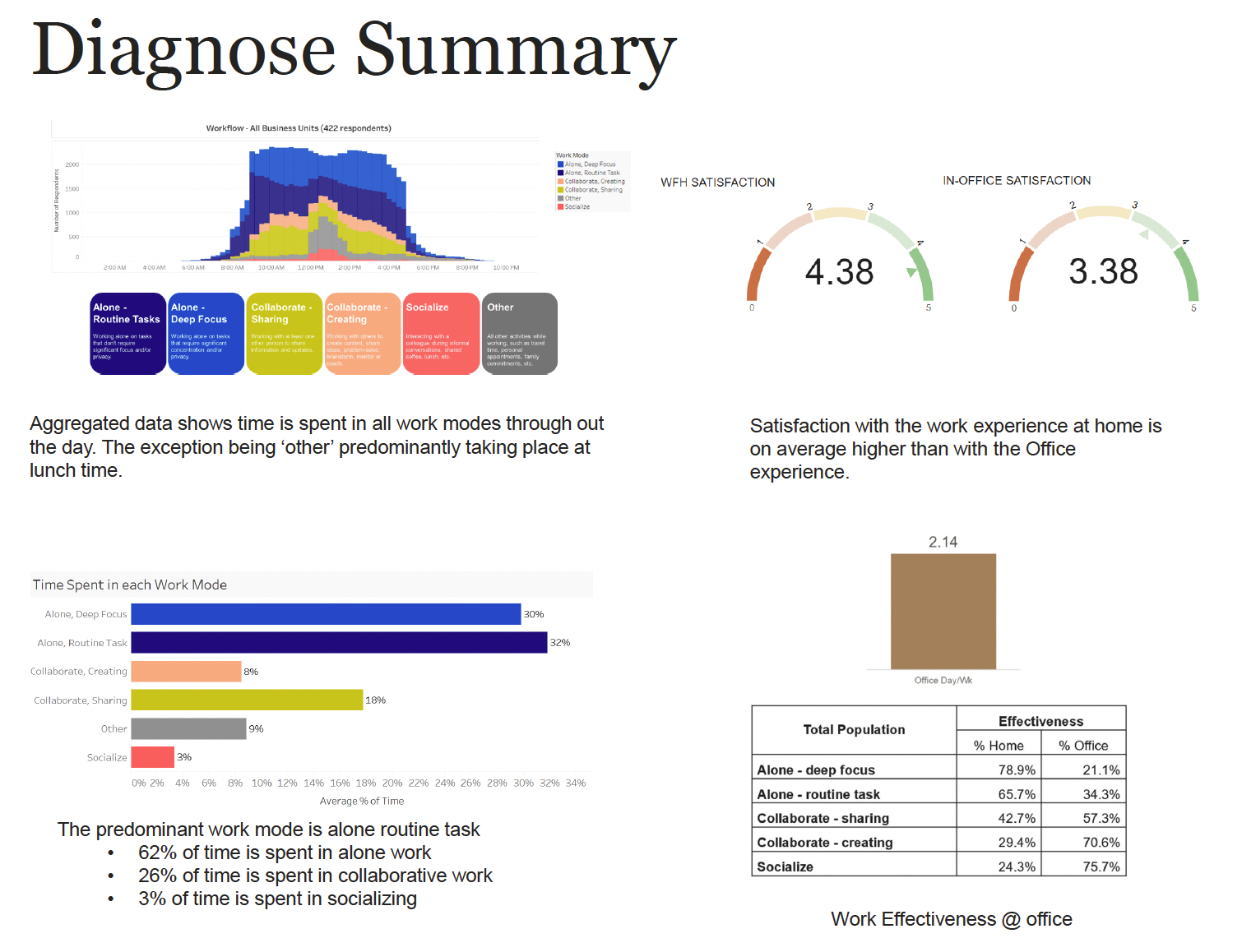
University Services Project
The University Services Project, our first initiative under the Workspace Futures 2030 Programme, aims to reimagine the UofG's Services work environment and promote innovative and effective ways of working.
Through this initiative, we aim to align our physical infrastructure with the University Strategy and the University Services Strategy, ensuring that our workspaces reflect our vision and support our objectives.
If you have any questions, reach out to the project team at workspace-programme@glasgow.ac.uk.
Diagnostic Stage
The University Service Project Diagnostic Stage involved an extensive range of research with colleagues across the University Services aimed at crafting potential scenarios to help us reimagine our workspaces. These included:
-
Three Diagnostic Surveys:
- Workmode Study
- Work Experience Survey
- Culture Survey
-
Observational & Contextual Interviews
-
Building Analysis
-
Employee Co-design Workshops
These activities collectively formed the foundation for developing proposed scenarios.
Diagnostic Timeline

Diagnostic Summary
The University Services Workspace Futures research highlighted that our colleagues collectively ranked Community, Innovation and Cross-Functional Connections as the most important foundational pillars.
The research revealed that an effective campus experience for our University Services colleagues should primarily provide spaces that facilitate collaboration and connectivity among different teams, departments, and managers, thus fostering networking opportunities and knowledge exchange.
Wellbeing has been recorded as one of the most valued aspects of the work experience for our colleagues.
However, 46% of participants expressed dissatisfaction with the availability of spaces for unscheduled meetings. The limited availability of areas suitable for spontaneous discussions and collaborative work emerged as a recurring concern. Both ad-hoc meeting spaces and private areas for team-based projects were noted to be insufficient.
Moreover, 45% of respondents conveyed their discontent with the accessibility of private spaces. For those who prefer working independently, the lack of options and accessibility to private workspaces proved to be a prevailing issue.

Principles
The Diagnostic Stage results have been used to craft the Work Experience Principles, which encompass all elements of the University Services colleagues' work experience and provide a lens for the design of workplace solutions. These principles will help to bridge the Critical Success Factors, Foundational Pillars, Key Findings, Insights and Recommendations for University Services' future work experience.
1. Be a part of the University community
How might we create a work experience which enhances community across all campuses, buildings and people.
2. Work together within and across teams
How might we extend the team bond and camaraderie to include other teams and work effectively together within University Services to deliver excellent services to students and academics.
3. Stay close to our customers: students and academics
How might we increase our visibility to and connections with our customers in order to deliver excellent services.
4. Wellbeing in the office and Choice & control
How might we provide the choice and control to improve our work experience and wellbeing in the office.
5. Push boundaries to innovate
How might we create the conditions to enable cross-functional innovation.
6. Prepare for a collective journey
How might we prepare processes, IT and change management to support us on the collective journey to Workspace Futures 2030.
What's Coming Next?
As we move forward with the Workspace Futures 2030 initiative, the next steps involve assembling a dedicated Project Team which will oversee the Construction stage. This team will be tasked with bringing to life design solutions, grounded in the feedback provided and other data gathered during the Diagnostic stage. Our approach is collaborative and strategic; we're working closely with both Project and Programme Boards to ensure that these designs are not only innovative but also align seamlessly with how the University Services teams function and support existing processes and other essential requirements.
Over the next 12 months, we plan to engage various teams across University Services to ensure that the solutions align with the requirements and needs identified. Through this collaborative effort, we aim to create workspaces that are not just functional but also act as catalysts for strengthening our community, promoting collaboration, fostering sustainability and efficiency, and enhancing wellbeing and diversity.

